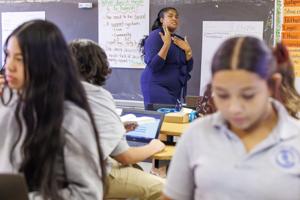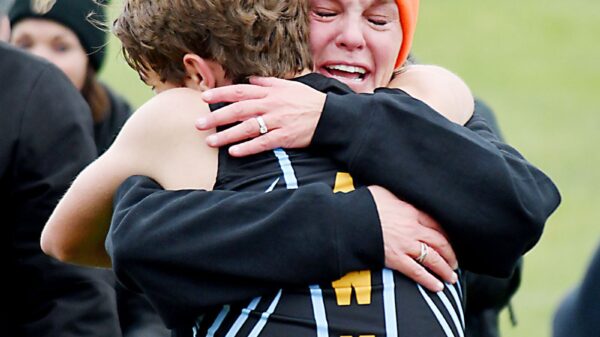As children across the Lehigh Valley return to school this week, pediatricians are emphasizing the importance of health precautions to prevent the spread of communicable diseases. The back-to-school season often coincides with an increase in illnesses as students come into contact with sick classmates. Dr. Jennifer Janco, chair of pediatrics for St. Luke’s University Health Network, highlighted that common illnesses during this time include COVID-19, influenza, pertussis (whooping cough), strep throat, and respiratory syncytial virus (RSV).
Dr. Janco stated that while most healthy children can manage these illnesses, some cases can lead to severe complications, particularly in unvaccinated children. “Every year we see children hospitalized with the flu, and every year we see children die from influenza, and the large majority are children without underlying health conditions,” she noted.
Understanding Risks and Precautions
Dr. Daniel Ly, a pediatrician at Lehigh Valley Health Network, explained that respiratory infections prevalent in schools could escalate into more serious conditions, such as pneumonia. Certain children may be at higher risk for complications based on their health history. For example, a child with asthma is likely to experience more severe symptoms from respiratory illnesses, while a child with a seizure disorder may have seizures triggered by a fever.
“It’s essential to assess the individual child,” Dr. Janco emphasized. “Children with chronic conditions are at a greater risk for complications from routine illnesses.” To mitigate these risks, ensuring that children have their medications updated is crucial as the school year begins.
Vaccination plays a key role in preventing the spread of diseases. Dr. Janco encouraged parents to vaccinate young children against COVID-19, given their lack of natural immunity. With flu shots now available, she noted that this period is an ideal time for parents to ensure their children are immunized. Additionally, there are vaccines for pertussis and measles, both of which have seen a resurgence in recent years.
Promoting Healthy Habits
Dr. Ly stressed the importance of teaching children proper hand hygiene to further reduce the spread of illness. “Encourage children to wash their hands before lunch, after using the restroom, and once they return home,” he advised. While hand sanitizer is effective, he emphasized that children should wash with soap and water if their hands are visibly dirty.
A balanced diet, adequate hydration, and sufficient sleep are also critical for maintaining a strong immune system. Parents should monitor their children’s health and seek medical attention if they notice concerning symptoms, such as a high fever. A temperature of 105 degrees Fahrenheit or higher should prompt immediate medical consultation, while prolonged fevers lasting more than three to four days could indicate a more serious condition.
Dr. Janco warned that for unimmunized or underimmunized children, a fever may suggest a severe and contagious infection. In those cases, she recommended contacting a primary care doctor instead of going directly to the emergency department, to prevent the potential spread of illness.
Immunization and health awareness will be key themes as children head back into classrooms in the Lehigh Valley. By taking these proactive measures, parents and guardians can help ensure a healthier school year for their children, reducing the likelihood of illness and hospital visits.



































































